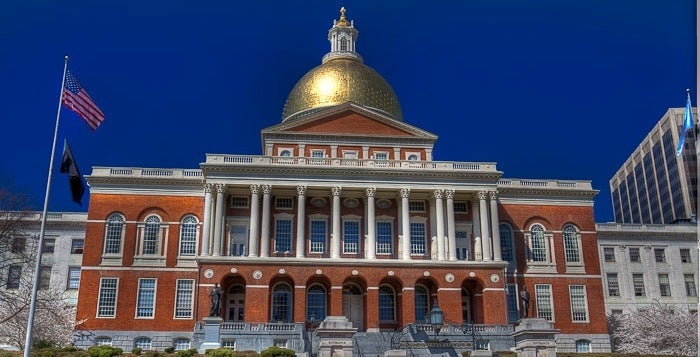Students taking part in a state program aimed at making college more affordable and increasing graduation rates will now have more majors to choose from, including criminal justice, graphic design and computer science.
State education officials plan on Monday to announce an expansion of the “Commonwealth Commitment” program to include more than 40 majors, up from the original six, with the goal of encouraging more students to participate.
Through rebates, credits and tuition and fee freezes, the initiative cuts costs by an average of $5,090 for community college students who transfer to the University of Massachusetts or a state university for their bachelor’s degree.
Education Secretary James Peyser said he hopes the expansion will lead to more students enlisting in a program that relatively few took advantage of in its first year. Last year, with a “restrictive number” of majors offered, a little more than 100 students enrolled in the program, he said.
“It’s still a new program. It doesn’t have perhaps as high a profile as it should,” Peyser told the News Service. He said, “This year will hopefully be more of a real test of the attractivity.
Under the program, which was launched in May 2016, qualifying students who earn an associate’s degree at one of the state’s 15 community colleges and then go on to a four-year public institution receive rebates and tuition credits. The savings for most students comes out to at least 40 percent of the “typical sticker price” for a bachelor’s degree before financial aid, according to the Baker administration.
To be eligible to participate, students must begin at a Massachusetts community college, complete their associate’s degree within two and a half years, then transfer to a state university or UMass, where they must complete their bachelor’s within two more years.
Participating students are required to attend school full-time and maintain a 3.0 grade point average. Peyser said the full time attendance is an important component because students who take college courses part-time are less likely to complete their studies.
The program can bring the cost of four-year degree below $40,000, Peyser said, and to $15,000 or less with state and federal financial aid on top.
“That’s a dramatic savings, but making college cheap is really only a part, in some ways a small part, of what we’re trying to do here,” Peyser said. “What we’re trying to do here is making college not only affordable, but make a college degree more achievable for more students.”
The programs of study covered in the program — which will now also include business, early education, industrial design, architectural design, communications, liberal arts and sciences — account for 75 percent of the majors chosen by current public higher education students, according to the administration
The expansion makes all majors offered by the Massachusetts College of Art and Design and six specialty programs at the Massachusetts Maritime Academy eligible for Commonwealth Commitment discounts.
Higher Education Commissioner Carlos Santiago said in a statement that the program is unique among states’ college affordability efforts because it creates “incentives for students to earn two degrees in four years.”
“We’re hoping that students who may not have thought they could afford a bachelor’s degree will be convinced to continue on with their education,” he said.
Last week, the Massachusetts Budget and Policy Center released a report showing that the median wage for a Massachusetts worker with a bachelor’s degree was 99 percent higher in 2016 than the median wage of a high school graduate, up from 49 percent in 1979
The report said public higher education enrollment has gone up while total state funding has declined, leading to a 31 percent drop in per-student spending since 2001, as adjusted for inflation. MassBudget suggested increased state support for community colleges, public four-year colleges and the UMass system could make it easier for more Bay State workers to earn degrees.

